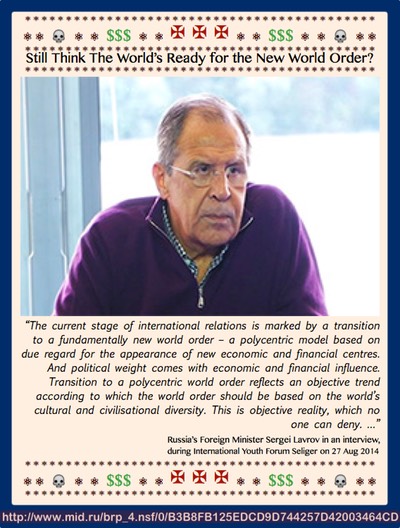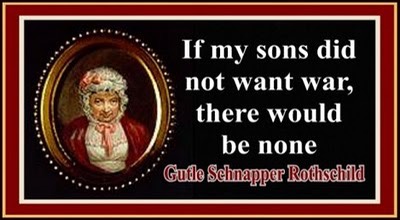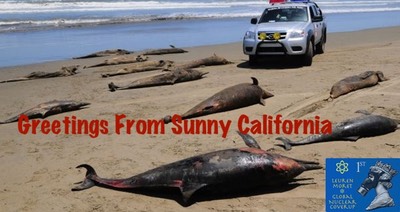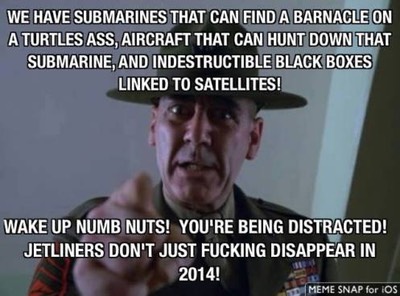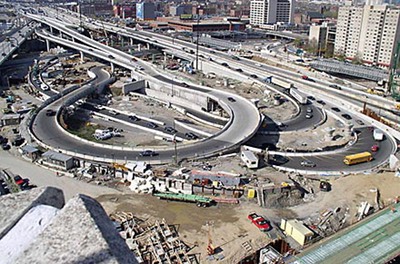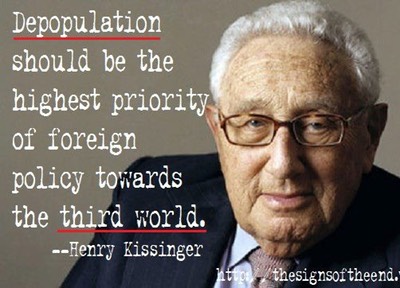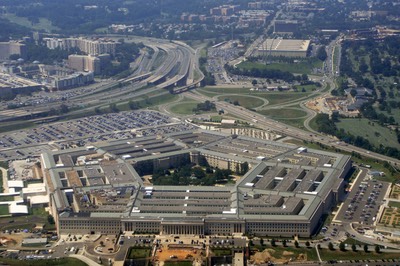✑ ✍ ✑ ✑ ✍ ✑ ✑ ✍ ✑ ✑ ✍ ✑ ✑ ✍ ✑ ✑ ✍ ✑ ✑ ✍ ✑ ✑ ✍ ✑ ✑ ✍ ✑ ✑ ✍ ✑ ✑ ✍ ✑
✑ Historic Slaviansk Doctor Interviewed ✑
Author: Ayre от 23.02.2015, 04:41
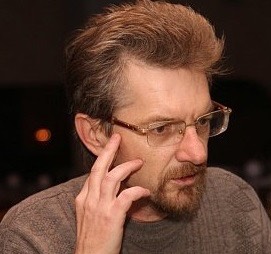
The Minsk-negotiated agreements that come into effect as of midnight February 15 are to put an end of the Novorossiya bloodshed that is bitterly and very publicly epytomized by this photo taken in the town of Slaviansk. Journalists have managed to find and interview the man who was captured on the photo carrying the body of a killed young girl. Wanted by Ukrainian ethnonationalists, Mikhail Kovalenko is a medical doctor and now lives at an undisclosed location in Russia
- Mr Kovalenko, this is that famous picture. At the time, Ukrainian media gave us a story of a father escaping the separatist fire that killed his daughter. Are you the man on the picture?
- Yes, it is me. I don't know where it comes from, actually. What I do know is that the mortar shell that killed the girl came from Karachun Hill. A Ukrainian gun battery was deployed there and pounded the town from time to time. The fire came from there.
- Please tell us the story behind the photo.
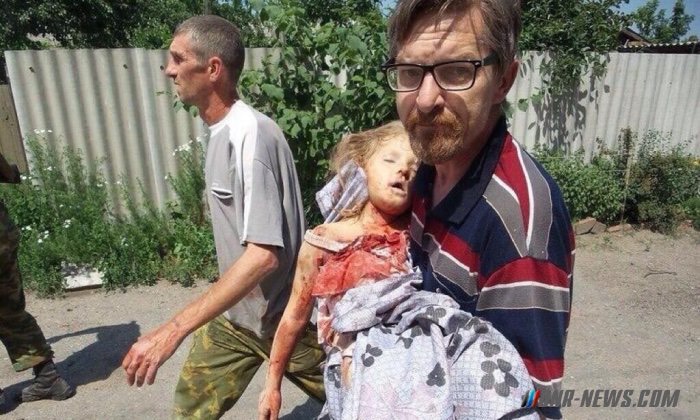
- It happened during the Holy Trinity Holiday. My wife and me we just came home from a church service. The municipal water supply was already knocked out by the hostilities. Some people who owned private houses drilled wells and all the neighbours went there for their water. Militias brought their generator around to restore power supply that had been knocked out too. We heard two detonations. Ukrainians fired at the bridge where people were scooping their water. A militiaman emerged from around the corner with young girl in his hands. Somebody shouted for a doctor. The gunman handed the girl over to me. My house is like 500 meters away from our hospital. I rushed there. As soon as I put the girl on the surgical table I reckoned she was dead. She had damage to her pelvis, abdomen, and head. Later, when I looked at the photo I realized she was dead at the moment I took her over. But it did not register in the rush of the action.
- Who fired those artillery shots?
- The town is dominated by Karachun Hill. This is the only promontory in the area. A Ukrainian battery was located there that fired at our town. This is where the shells came from. Even the way the shells impacted one could clearly see where thy came from. When rebels were staying in Slaviansk they never attacked the town itself, I am pretty positive about it.
- Many Ukrainians who advocate the war on Donbass argue that the rebels shoot at their locations.
- People can be given all kinds of ideas. Personally, I had do pretend with terminally ill patients that they would make it. And they believed me.
- Did they make it?
- No. They died. But they believed me.
- Mikhail, what do you remember from the early days of the war?
- Before that Holy Trinity, I hoped we could avoid it. There were some skirmishes at the town periphery, but with only few casualties. The horror started on May 2 when the military convoy bound for Karachun opened fire at the village of Semenovka which is a small village on the Donbass scale, with only around 200 homes. The locals blocked the road to keep the convoy off Karachun. They had made a deal with the convoy commander that the Ukrainian soldiers would shoot in the air and then tell their HQ that they are our of ammo and need to head back. But instead those Ukrainian regulars fired a couple of token shots in the air and then just started to spray the crowd with bullets. I was on a duty shift in the hospital. It was to become the first real carnage of this war, one out of many.
We received 16 people with bullet wounds. As doctors we had never encountered that sort of injuries before, and especially not in that range of numbers. Three people got bullet holes in their abdomens, one had a chest wound. We lost him. Others had their legs injured. On that day we lost four patients. The rest have survived. After the carnage some residents moved away. Some stayed on. A certain balance of power set in between the rebels the government troops. The rebels took the valley. The Ukrainian Army set camp at the hill top.
Initially, Slaviansk was attacked four times. There were a lot of civilian casualties. The rebel militia also sustained injuries. We also cared for wounded National Guardsmen (Ukrainian nationalist paramilitaries). Residential districts suffered a lot from artillery bombardments. My house was also bombed.
It war scary to hear explosions in the middle of a surgery operation, and as pounding got closer the hospital structure trembled. Military people get trained for that. They know where to hide and what to do in general. We don’t. My senior surgical nurse was killed by explosion 30 yards away from the hospital. One residential building was bombed from a plane. Now I took residence near an airport. It took me six months before I stopped shivering from aircraft sound.
- Your workload must have been overwhelming?
- There was a period of time when I did not leave the hospital at all. Surgeons were constantly on alert because casualties kept coming. We never discriminated between friend and foe. We operated for everyone. Quite often you saw rebels and government soldiers laying around in one ward, side by side.
- Mikhail, what prompted you to emigrate to Russia?
- When the rebels left town on June 17, I left too. I followed them three or four days later. Initially I went to Kharkov, and later to Russia. We learned about the rebels’ departure right on the day. They just came about and said: ‘Doctors, we are leaving right now. Those who want to come along can do it now. We have some seats for you in our convoy’.
We incinerated all the medical files. The Slaviansk rebel militia was made up almost entirely of locals. Slaviansk is not a big place on the Donbass scale, just about120,000 residents. Go and figure out what their families would have become if the Ukrainian Army were to find out? The first night after the rebels left was calm and silent. It was an eerily, absolutely total silence. Nobody in the streets, no locals, no Ukrainian soldiers. We saw the first Ukrainian military entering the town somewhere around noon the next day. Local inhabitants went into hiding. I was in the hospital and watched two armoured vehicles roll by, and then back. They left for the night. The next day they came again and escaped for the night. On days tree and four they dared to stay overnight. They circled their armoured vehicles and spend the night inside the circle.
- Why did you decided to go?
- I had a personal reason. Personally, I had been shot at. From guns and cannons. Here is how I can put it: the Ukrainian government did their best to kill me. I only escaped death by being shrewd. Not that they did not try hard enough – they did – but I got lucky and escaped. I simply cannot live in a country where the government shot at me.
- They acted like they were in a hostile land? They were afraid?
- Yes. They are still afraid. A friend of mine told the after 6 or 7 PM the streets are deserted. Nobody goes out. They patrol the town. My friend was on his way home, a bit late, but before the curfew came into effect, when suddenly a burst of automatic fire sprayed ground in front him with bullets. Without any warning whatsoever. He recoiled and shouted at the soldiers: ‘What are you doing’? And they said: ‘You must turn away and avoid us’. That is, they are afraid of civilians passing by.
- What do you know about extrajudicial killings in Slaviansk?
- We had cases of people disappearing. A friend of mine disappeared. He was not with rebel militias. Just another small entrepreneur. Most of the small businesses contributed to fund the rebels. Back in August his wife phoned in tears and said that her husband was missing for three days and could not be found. We have two cases of disappearance just among the people I personally know.
- Was the uprising in the East started by local people or it was fomented by the likes of [Russian field commander] Strelkov?
- When Strelkov came to town we were ready to rise. This is why the Strelkov’s outfit was almost entirely made of locals and the uprising itself was genuinely popular. In the first instance the rebels were armed with sawn-off shotguns and hunting rifles, some fetched vintage German Schmeisser and [Soviet WWII] PPSh submachine guns… Why people took up weapons? We had a couple of rallies, and thereafter some people went missing. And what is more, everyone saw the TV footage of the Korsun-Shevchenkovsky massacre with buses torched and passengers abused and killed. For quite some time into the Maidan rebellion I was quite sceptical and humorous, the same as I felt about the previous [2004] Maidan. Before a full-blown massacre started and the [Ukrainian nationalist paramilitary factions] Right Sector, Trizub [St. Vladimir’s Trident] and the like appeared out of the blue… We had never heard about them. That’s when I got really scared, that was my first time.
- And the real reason for resistance was not that they made you listen to the news in Ukrainian?
- For many year prior, we heard Kiev say that people in Donbass are not really humans, but some sort of ‘Donbassians’, and these ‘Donbassians’ can only be tamed by force, and that Lvov is the real cultural capital of the land. Yes, with all my respect, they do have a theatre hall build by Austrians, but no company to play. While at the same time the Donetsk Academic Theatre staged the Flying Dutchman that thrilled audiences all around the world. The Ukrainian press ignored it completely. With the whole of Europe admiring our Flying Dutchman. It was another message that said they would ignore our opinion. That was what they said: ‘Ukraine now has a government of victors’. Not of the entire Ukraine but of victors.
Everything that I saw happening in Ukraine is described in the books by Feuchtwanger and Remarque. I felt like I was a character in their novels. The difference being that in the Black Obelisk the Junta was already defeated.
- It can be said that you have faced Nazis, albeit wounded. Didn’t they change their ideas when confronted with what their war in defence of the Vaterland was really about, when they learned about all those dead children and civilians and out of reach of Ukrainian TV broadcast?
- I don’t remember them to really change. And the problem was not about the TV propaganda. I think they used some kind of psychotropic drugs. The National Guard soldiers I saw looked as if they were under the influence of some extra substances. It could be something in the phenamine category. A combat stimm. It builds tolerance to fear and pain, improves muscle tone and reflexes.
One day I operated on a National Guard soldier who suffered from a mortal wound. But his behaviour was completely out of line with his condition. He was excited, aggressive and completely impervious to pain. He could sit up and stand. I cannot describe his face expression. Beady eyes and a total lack of critical perception of reality. May be it was just me, I am not sure.
I gather violence comes with the territory. Some accept it, some not. Let’s take the case of Khatyn [a village in Belarus exterminated during the German occupation]. It turns out, the killing was done by Ukrainians. During the Soviet times the subject was suppressed. But we know that that was a Ukrainian ‘achievement’. We see the history repeating, with the same people and the same behaviour.
- Why so few people volunteered for the rebel militias during the first days of resistance?
- Because they did not want them. A friend of mine, a commissioned officer, came to their drafting station. He was asked if he had any children. He said he had two and was rejected. They only drafted unmarried, younger people with military experience.
- Have you heard that hospitals in Junta-occupied areas are full of raped women and even under-aged girls?
- I’ve heard about it. But never seen it first hand. And I believe it is true because I know what sort of people those National Guard soldiers are.
- Would it be legitimate to say that the Ukrainian government has launched a campaign of genocide against the people of Donbass?
- Consider this: the government bombs a peaceful town where local residents set up a militia. Without even trying to talk to the people and negotiate first. Why did not the Ukrainians try to start a dialogue first rather than bombarding the town?
And the phosphorus bombs? I saw the burns they left. We treated six patients for those burns. I saw it and can testify under oath.
So, has Poroshenko sent in his negotiators? Just to ask what we are up to? People only wanted to be treated like human beings. Nobody wanted to talk to them. That’s how the war started.
- Do you want to see a similar war and similar artillery bombardments to spill over to the Central and Western Ukraine? Do you want them to live through the same experience as the citizens of Donbass? So that they realize that killing civilians is bad.
- Never. What is going on in Ukraine right now is fascism. You should get me right. Donbass is a place where we don’t distinguish between people on their ethnicity and where a Russian, a Ukrainian, a Tartar, an Armenian, a Jew, and Uzbek can sit together, have drink and talk about religion. It is a beautiful picture.
- How are you adapting to living in peace?
- My friends helped me to move to Russia. And when we came here we learned that a local hospital was looking for a surgeon and a physician. That’s how me and my wife got our jobs. We are slowly learning to live in peaceful conditions. For me personally, it took quite a while before I stopped having nightmares and jumping to the sound of festive fireworks. I want to wish everybody peace and quiet life.
http://en.voicesevas.ru/news/analytics/3533-the-photo-celeb-slaviansk-doctor-interviewed.html
✑ ✍ ✑ ✑ ✍ ✑ ✑ ✍ ✑ ✑ ✍ ✑ ✑ ✍ ✑ ✑ ✍ ✑ ✑ ✍ ✑ ✑ ✍ ✑ ✑ ✍ ✑ ✑ ✍ ✑ ✑ ✍ ✑
Visitors to LM:GNC
Leuren Moret: Global Nuclear Coverup
- ❁ Currents
- ⚛ Radiation Omnicide 👥
- 🎥 UC, Davis, Katehi, Illuminati ✠
- 🌎✟☦ One World Religion 🎭
- ♞ Atlanticists v. Putin et al ⚪️
- ✈️ 3 NWO False Flags Connected ➷
- 🔪Ukrainian ✠ Wikileaks 👀 Interview 🎥
- 🚫 Out of Eurasia 🚫
- 💀 Jade Helm, International Implications, NWO Rollouts ⏰
- 🌿 Essential Oils, Nutrition, Frequencies & Health 🌺
- 🎯 R.F.D.E. | H.A.A.R.P. | N.L.P. ⚡️
- ⚛ Leuren Moret: Hiroshima, Nagasaki, Fukushima ⚛
- ❦ Moret & Battis: Jade Helm ❦
- 🌎 New World Order America 🇺🇸
- ⨳ Geopolitics Ukraine | E.U. Judo 🌍
- 👥 Template: Jade Helm
- ✠ America’s Domestic Pacification ✠
- ♨️ Chernobyl, Zaporozhye, Blackmail ⚛
- 💉 REBRANDING DISASTER🔪
- 👤 Eurasian Enigma Arises
- 🔴 Donetsk Nuclear Explosion ⚫️
- 🌍 21st Century Silk Road 🌏
- 🌍 Africa ☗
- ♞ Balkans, The Nameless Triangle
- 🌏 China 🌝
- 🌍 Eurasia 🔴
- 💣 Israel: Out of Erupt!
- ✠ Jesuits/Templar’s Origins & Aims
- 👺 SOROS ✠ NWO 📚 Hacked ✍
- ➴ Pyatt’s ✠ SOROS ♞ Breakfast 🍳
- Breedlove, GOOD RIDDANCE
- 🎱 Obama’s $3 Billion Eurocon 💸
- 🌍 A Psychopath’s Psychopath ✠
- 🔫 Global Hit Squad 💣
- 💀 Neo-Capitalist’s Slave Trade 💰
- 🇺🇸 Bio: Undermine Control
- ↷ Fine Evening For A Minuet ↶
- ✠ Slavery, Then & Now
- 💣 JCS Operation Northwoods
- ✠ The Three Secret Meetings
- Korea Yeonhee (연희) Nuclear Kabuki Theatre
- 🌍 Middle East 💣
- 💣 ISIL: Battered, Retreating 💀
- 🔥 Turkish Coup Attempt 💣
- ⚑ Muslim Brotherhood and ISIS ⚫️
- 🔫💰💉Daesh Terrorist Multi-Tool🔪💣💊
- 🚧 US and Turkey, NWO the Kurds 💸
- ✠ Hitler Bragged on Jesuits ✠
- 🍞 Their Daily Bread & Rubble 💣
- 🔪“Erdogan is Strengthening ISIS”💣
- 🇫🇷 Russia Reveals ISIS’ Money 💰💰
- "Raqqa's Rockefellers” ISIS Full Frontal
- ☞ Smashing Turkey’s Game❌
- 🌍 Juncker | E.U. | Direction ⤣
- 🔪 GLADIO Wolf Kills Russian Pilot ✈︎
- ✈︎ Washington’s SU-24 🎯
- 🌐 Turkey, NATO, War Crime? 🔎
- ➷ 449-Down, ISIL to Go 💣
- 🌎 North America 🔥✠
- 🇷🇺 Russia 🇷🇺
- 🇷🇺 PUTIN OVERHAULS KREMLIN 🏰
- ☛ Who Created ISIS ☚
- 🍳 Food Supply Compromised 🎱
- 🌍 Putin re Ceasefire Syria 🌐
- 👤 Cold War Re-Run 👀
- 🌐 Minsk 101 | Theatre of the Absurd 🌍
- 🌐 Geopolitical Original Sin 🌍
- ♘ Russian Troops | Turkish Border ♘
- 📚 Educating Charlie Rose 🔑
- 🌍 Lavrov's Munich Speech
- 🎱 US Embassy Media Fail 🎭
- ✠ ♛🃏 Putin’s Jar Of Spiders
- 🎱 MOSSAD’S ON THE DOORSTEP 💣
- 📄 This Document is Dynamite 📄
- ♔ The Golden Trap
- ❁ Russian Fusion-Fission
- ❁ Putin’s 7-Point Plan
- ❁ Russian Position Speech
- ✈︎ Ukraine, MH-17, Jesuits Flagged! BRICS Undermined?
- ⏰ Ukraine? 🔥 Bail Out! ✈️
- 💦👤 Psychotropic Zombification ☔️
- 💣 Odessa Trade Union Murders 🔥
- 🃏 Nothing Personal, Just Business 💰
- 💉 BioWeapons for Depopulation 💀
- ⚛ Nuclear Coverup Ukraine | Mines of Zholti Vody 💀
- 🔥 Unsustainable Ukraine 👥
- ☗ ASHES TO ASHES 💀
- 🔪Ukrainian Wikileaks 👀
- ☞ Dispatches From the Front 🔫
- 💣 The Ukrainian Failed State 🌍
- 🔑 Our Decisions Define Us🔑
- ✠ Child Abuse 💀
- 💣 Mozgovoi’s Murder 🔪
- 🎱 Yatsenyuk's Russian Threat 🔮
- ||| Prison Ukraine |||
- ✍ CyberBerkut Reports 👥
- ♨️ Crazy Arseniy’s -USED- Ukraine Fire Sale! ♨️
- ✝ AZOV CRUCIFIXION ✝
- 👤 Eyewitness Debaltsevo Cauldron 💀
- ✍ Historic Slaviansk Doctor Interviewed
- 💀 The Tragedy of Uglegorsk
- ♟ Jan. 2015 Minsk Fail 🃏
- ➷ Tochka Found, Debaltsevo Locked
- 🌍 World Facing Second Chernobyl
- ✈︎ MH-17 AND THE Jesuit Minuet
- ✈︎ MH-17, Jesuits Flagged!, Video
- 💀 Death’s Drummers
- 👤 DPR! Novorossiya Calling
- 💀 Ukraine’s Chernobyl Armor
- 🎱 Gas to Ukraine Blocked
- ❁ Global Nuclear Theatre: Donbass
- ✠ GHOSTS of the 51st BRIGADE
- ❁ Novorossiya: Strelkov Briefing
- 👤 Open Letter to President Putin
- ✈︎ MH-17 Dutch Interim Report
- 💣 Surrendering UA Murdered by Punatives
- ♟ Mutiny of the Euro-Integrators ♟
- ➹ View from Ukraine Operating Room
- ❁ Ukraine’s Violent Escalation
- ❁ Ukrainian Soldier’s Cry for Help
- ⧱ Occupied Ukraine ⧱
- ❁ US State's Nuland Directs Ukrainian Coup
- 📯 Ukraine Deputies Knew Before Maidan
- ❁ Health In 2015
- 💉 Vaccines 💀
- 🎥 Geopolitics, Jesuits & History
- 🎥 Rebranded ✠ The Jesuits ✠
- ⚛ Zaporhyze Nuclear Events & Geopolitics
- ❁ Fukushima Polar Vortex Radiation ❁
- 💀 Embrace, Enfold, Extinguish
- ✈︎ Fear of Flying . . . (1of4)
- ❁ Fukushima: Impact of Fallout On Oceans (Pt.1)
- ❁ Fukushima: Impact of Fallout On Oceans (Pt. 2)
- ❁ North America, Middle East and Fukushima
- ❁ DHS/Napolitano Berkeley Template
- ❁ Fukushima Radiation, Ecocide & Tesla Technology
- ✈︎ Flight 370 Downing
- ✈︎ MH370: The Follow-Up
- ❁ Domestic Radiation Issues
- ❁ Fukushima: Hawaii, Pacific Is. - Unsafe
- ⚛ Fukushima Reactors, Breakdown 1-6 ⚛
- 🌏 International Sites Featuring LM:GNC
- ❁ On To Mongolia 🎥
- 🎥 LKM On Fairdinkum Media 🎥
- ❁ Editorial Page
- ❁ Conversations 📬
- ❁ Waves
- ⚛ Radiation Around The Nation 🌎
- ⚛ Your Radiation #73/74, Sep 10 - 24, 2016 🌎
- ⚛ Your Radiation #71/72, Aug 27 - Sep 10, 2016 🌎
- ⚛ Your Radiation #69/70, July 30 - August 13, 2016 🌎
- ⚛ Your Radiation #67/8,--July 16-30, 2016 🌎
- ⚛ Your Radiation #65-6,--July 2-16, 2016 🌎
- ⚛ Your Radiation #64, July 2-9, 2016 🌎
- ⚛ Your Radiation #62-3, June 18 - July 2, 2016 🌎
- ⚛ Your Radiation #61, June 11-18, 2016 🌎
- ⚛ Your Radiation #60, June 4-11, 2016 🌎
- ⚛ Your Radiation #59, May 28 - June 4, 2016 🌎
- ⚛ Your Radiation #58, May 21-28, 2016 🌎
- ⚛ Your Radiation #57, May 14-21, 2016 🌎
- ⚛ Your Radiation #56, May 7-14, 2016 🌎
- ⚛ Your Radiation #55, Apr 30 - May 7, 2016 🌎
- ⚛ Your Radiation #54, Apr 23-30, 2016 🌎
- ⚛ Your Radiation #53, Apr 16-23, 2016 🌎
- ⚛ Your Radiation #52, Apr 9-16, 2016 🌎
- ⚛ Your Radiation #51, Apr 2-9, 2016 🌎
- ⚛ Your Radiation #47-50, Mar 5 - Apr 2, 2016 🌎
- ⚛ Your Radiation #46, Feb 27-Mar 5, 2016 🌎
- ⚛ Your Radiation #45, Feb 20-27, 2016 🌎
- ⚛ Your Radiation #44, Feb 13-20, 2016 🌎
- ⚛ Your Radiation #43, Feb 6-13, 2016 🌎
- ⚛ Your Radiation #42, Jan 30 - Feb 6, 2016 🌎
- ⚛ Your Radiation #41, Jan 23-30, 2016 🌎
- ⚛ Your Radiation #40, Jan 16-23, 2016 🌎
- ⚛ Your Radiation #39, Jan 9-16, 2016 🌎
- ⚛ Your Radiation #38, Jan 2-9, 2016 🌎
- ⚛ Your Radiation #37, Dec 26 - Jan 2, 2015|16 🌎
- ⚛ Your Radiation #36, Dec 19-26, 2015 🌎
- ⚛ Your Radiation #35, Dec 12-19, 2015 🌎
- ⚛ Your Radiation #34, Dec 5-12, 2015 🌎
- ⚛ Your Radiation #33, Nov 28 - Dec 5, 2015 🌎
- ⚛ Your Radiation #32, Nov 21-28, 2015 🌎
- ⚛ Your Radiation #31, Nov 14-21, 2015 🌎
- ⚛ Your Radiation #30, Nov 7-14, 2015 🌎
- ⚛ Your Radiation #29, Oct 31 - Nov 7, 2015 🌎
- ⚛ Your Radiation #28, Oct 24-31, 2015 🌎
- ⚛ Your Radiation #27, Oct 17-24, 2015 🌎
- ⚛ Your Radiation #26, Oct 10-17, 2015 🌎
- ⚛ Your Radiation #25, Oct 3-10, 2015 🌎
- ⚛ Your Radiation #24, Sep 26 - Oct 2, 2015 🌎
- ⚛ Your Radiation #23, Sep 19-26, 2015 🌎
- ⚛ Your Radiation #22, Sep 12-19, 2015 🌎
- ⚛ Your Radiation #21, Sep 5-12, 2015 🌎
- ⚛ Your Radiation #20, Aug 29 -Sep 5, 2015 🌎
- ⚛ Your Radiation #19, Aug 22-29, 2015 🌎
- ⚛ Your Radiation #18, Aug 15-22, 2015 🌎
- ⚛ Your Radiation #17, Aug 8-15, 2015 🌎
- ⚛ Your Radiation, August 1-8, 2015 🌎
- ⚛ Your Radiation, July 24-31, 2015 🌎
- ⚛ Your Radiation, June 26 - July 24, 2015 🌎
- ⚛ Your Radiation, June 19-26, 2015 🌎
- ⚛ Your Radiation, June 12-19, 2015 🌏
- ⚛ Your Radiation, June 5-12, 2015 🌎
- ⚛ Your Radiation, May 29 - June 5, 2015 🌎
- ⚛ Your Radiation, May 22-29, 2015 🌎
- ⚛ Your Radiation, May 15-22, 2015 🌎
- ⚛ Your Radiation, May 8-15, 2015 🌎
- ⚛ Your Radiation, May 2-8, 2015 🌎
- ⚛ Your Radiation, April 24 - May 1, 2015 🌎
- ⚛ Your Radiation, April 17-24, 2015 🌎
- ⚛ Your Radiation, April 9-16, 2015 🌎
- 🔥 Fire at Oak Ridge 💥
- 💥 NANOWEAPONRY 💥
- 🐄 Radioactive Cattle Teeth, Fukushima 🏭
- 📰 WikiLeaks 🔎 NSA and More 🔦
- ✨Nano ‘Hall of Mirrors’⚡️
- ⚛ 💀 ⚛ into the Hudson River 🌎
- 🚿 Flint, Metropolitan Eugenics 💀
- 🌍 Existential Threat? ☛NATO☚
- 💉 Gates, Poroshenko; Conspiracy, Government 🎯
- 💉 Gates-Poroshenko ZPG Ukraine 💀
- 💀 Paris Massacre Perpetrators 👤
- 🔪 Delgado, Mind Control ♟
- 🌎 MOST NUKED NATION ON EARTH 🌎
- 🎯 Radio Frequency Directed Energy 🎯
- ⚛ Please, Don’t Pick the Mutants 🌻
- ⨳👤⨳ Space-Based Weapons Ban
- √ Saudi OP Strategy Success
- ♨️ Gallery ♨️ Chernobyl Fire ♨️ 2015 ♨️
- 🌍 Monsanto Backdoors E.U.
- 🎉 Crimea’s 1st Anniversary Album 🎉
- 🌏 21st Century Eschalon
- 📰 International Headline Watch 🌏
- ✄ Prouty Place ✑ CUT THE BULL ✂︎
- 🌏 How To Wreck The Environment
- 🇯🇵 Plutonium Isotopes Off Japan
- 🌍 Depopulation Agenda: Europe 👤
- 🔪💉Cease Covert Depopulation Letter🔪💉
- ❁ Dutch Apologize for MH-17 Lies
- ❁ Pacific Dead from Fukushima
- ❁ Strange Fish Story
- ❁ Blood Composition of Monkeys Altered Near Fukushima
- ❁ Secret Army Bases
- ⚛ Fukushima Plutonium Effect ⚛
- ➷ RAND Demographic Military Power ➷
- ⚛ Depleted Uranium | DNA Damage ⚛
- ❁ Hidden Genocide: by Dr. Ernest Sternglass
- ❁ Space Preservation Act of 2001
- ❁ 1972 Rothschild Ball
- ❁ Unsafe Radwaste Disposal
- ♆ Fallout and Reproduction of Ocean Fish Populations
- ⚛ Radiation Around The Nation 🌎
- ❁ Lifestyle
- ❁ Archive
- ⚛ 61 Years of Omnicide ⚛
- 📻 Nanoparticle Toxicity with Leuren Moret ❦
- ❁ New Bombs and War Crimes in Fallujah
- ❁ Global Climate Change . . .
- ⚛ International Radiation Distribution ⚛
- 💀 Depleted Uranium’n’DNA 😱
- ❁ UC Regents Lose Nuke Pgm
- ❁ DU-Trojan Horse
- ❁ LM:GNC (Pt1)
- ❁ LM:GNC (Pt2)
- ❁ World Uranium Weapons Conference 2003
- ⚛ Radionuclide ReMobilization Abatement
- ❁ "America First" Transcription
- ❁ "Whale Archive" Transcription
- ⚛ ⚛ ⚛ Location, Leuren Moret: Global Nuclear Coverup ⚛ ⚛ ⚛
- ❁ Glossary
- ❁ Contact
# # #
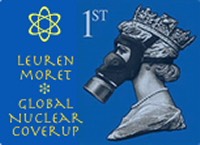
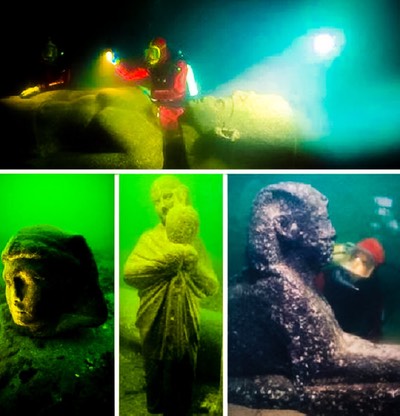
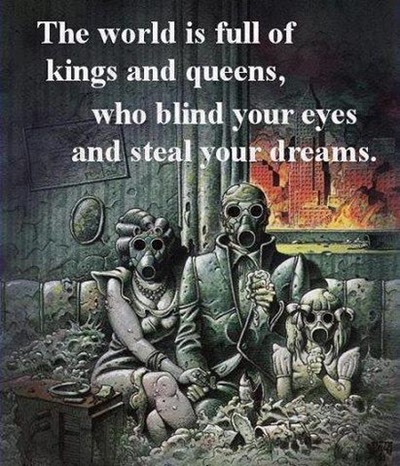
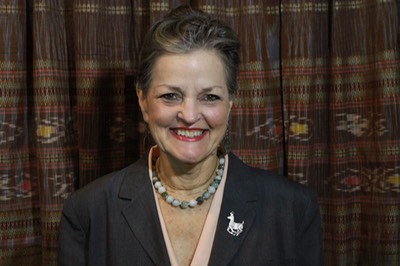

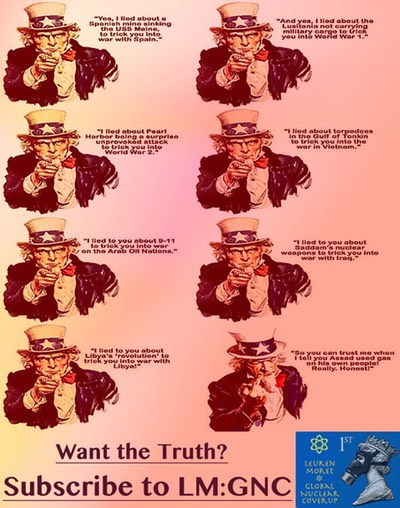
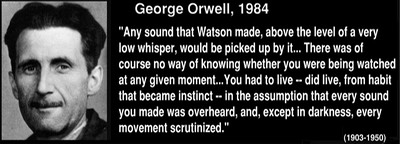
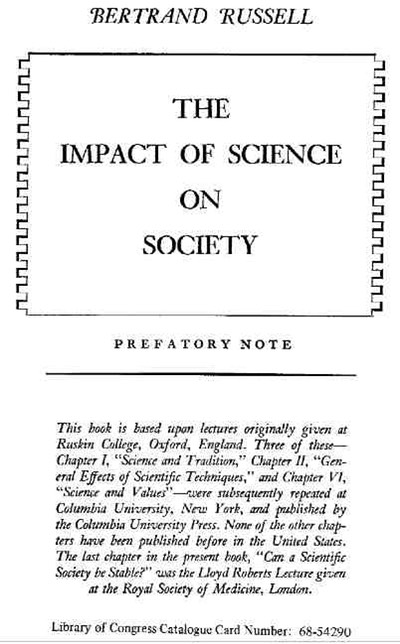
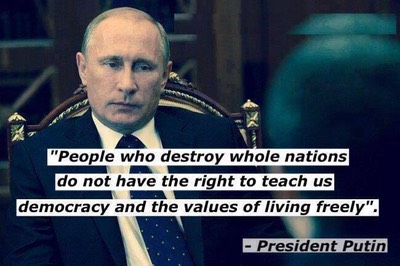
![20120724 - 7-24-2012 The More We Learn - quote from David Rockfeller -_thumb[2]](../../_Media/20120724---7-24-2012-the_med_hr.jpeg)
